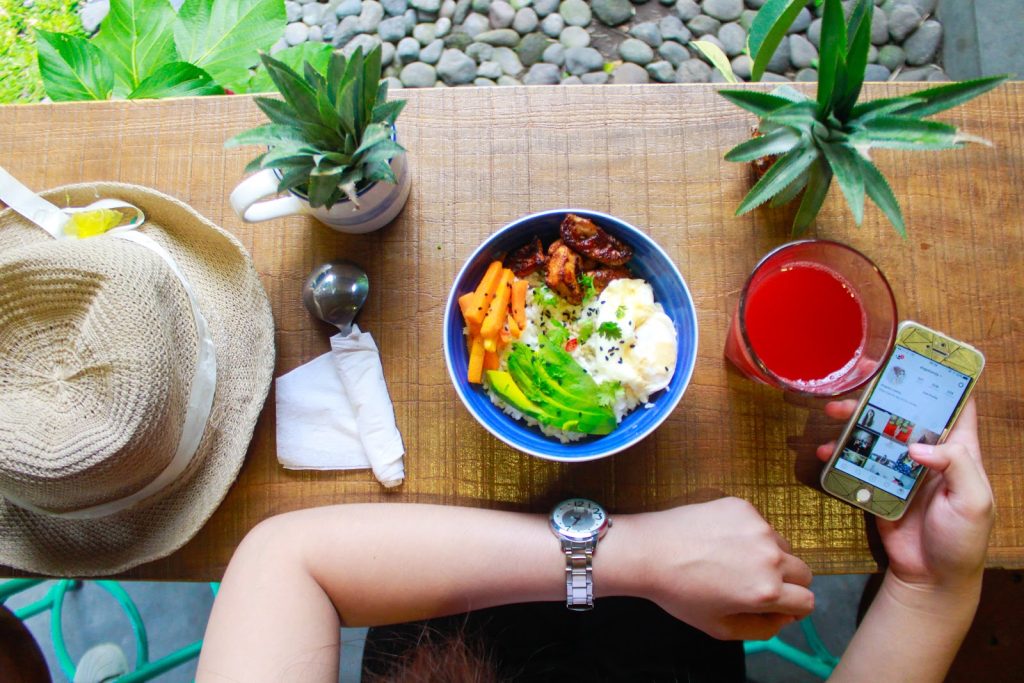Ginseng is a herbal root known to be able to aid various medical conditions. The root is mostly light coloured, and a red one is usually one that has been preserved. You can tell that it is ginseng by its forked-shaped root and a relatively long stalk with oval-shaped green leaves. On the other hand, the Chinese say that the ginseng root is shaped like the human body. Hence, the Chinese term “ren-shen,” which translates to “in the image of a man,” and why it is highly sought after to boost the immune system, fight fatigue, and reduce stress.
Types of Ginseng
The most common ginseng available to us in the ASEAN region is the Asian Panax Ginseng which mainly comes from China and Korea. There’s also the American ginseng variety found in North America and Canada, although, in reality, there are about 13 species of ginseng classified under the name ‘Panax’.
The word Panax comes from the Greek word ‘panakeia’, which means ‘all healing’, and it has been used as a natural medicinal herb for more than 2000 years. Due to popular demand today, ginseng can be found in various forms. The root can be dried and ground to make tablets and capsules. Its extract can be bottled or added into creams, although it is still most commonly found in Asian cooking and teas.
Why it is good for you when you are NOT pregnant
Ginseng is actually pretty good for your overall health when you’re not pregnant. That’s because there’s an active ingredient in Ginseng that contains medicinal properties called ginsenosides, and they have been known to:
- lower blood sugar in diabetics
- minimise cold or flu symptoms
- improve immunity
- improve menopausal symptoms
- aid muscle injury after exercise
- improve memory function
- increase strength and stamina
- improve digestion
Although many herbs are known for a wide range of benefits, there aren’t enough studies to fully support these claims. So even if Ginseng contains all the antioxidants that can be beneficial to your body, you should always practice caution when consuming them while you are pregnant.
Why it is safer to avoid Ginseng when you ARE pregnant
Although Ginseng and other herbs can help alleviate some uncomfortable pregnancy symptoms such as morning sickness and acid reflux, consuming too much of it when you are pregnant may harm your baby’s growth and development. Even non-pregnant individuals have reported experiencing some of these side effects after consuming ginseng for a short period:
- diarrhoea
- trouble sleeping
- dry mouth
- headache
- itching
- vaginal bleeding
- changes in blood pressure
- rapid heartbeat
- allergic reactions
- nervousness
It is important to note that Ginseng can interact with other drugs, medications and/or supplements. All the more reason for you to check with your doctor first before taking Ginseng or any form of herb while pregnant. You might think it is safe, but you have to remember that even though herbal products are regulated in Malaysia, they are not subject to the same strict regulations as prescription and over-the-counter drugs.
So despite well-meaning advice that Ginseng is good for you and your baby, you might want to decline as diplomatically as you can. Studies have shown that the active compound called ginsenoside, which is found in Ginseng, led to abnormalities in rat embryos. Scientists leant that the higher the concentration, the greater the risks. Understandably, there is little research into how Ginseng would affect pregnant women, as it is not safe, not to mention unethical, to test it on human beings.
Therefore, with these findings, experts have concluded that it is best for pregnant women (especially during the first trimester) and breastfeeding mothers to avoid Ginseng from their diet.
What about Ginseng tea and other herbal teas?
If you are turning to herbal teas to help reduce nausea, you need to be aware of which ones are safe and which ones you should steer away from, so that they do not interfere with your baby’s growth and development. Here are some common ones you should avoid or consume in moderate amounts unless your doctor gives you the go-ahead:
Chamomile and Ginseng Tea
Chamomile tea is usually used to reduce menstrual cramps and stomach aches. But during pregnancy, it may be beneficial to some for easing the symptoms of morning sickness. However, researchers have found that Chamomile Tea has been associated with preterm delivery and low birth weight in infants. There have also been rare cases of women experiencing anaphylaxis while drinking Chamomile Tea.
On the other hand, Ginseng Tea has been linked with growth restriction, high blood pressure and difficulty sleeping.
Ginger Tea
Although known to reduce pregnancy-related nausea, overconsumption of ginger tea may result in shorter length gestation and reduced infant head circumference.
Green Tea
Thanks to K-Beauty, everyone knows that Green Tea is rich in antioxidants and reduces inflammation. However, some studies have shown that although those anti-inflammatory properties may reduce fat mass and high risk of obesity in offsprings, Green Tea contains caffeine, which means you need to take care to limit your intake. Too much caffeine has been associated with impacting the development of fetal organs.
Hibiscus Tea
Hibiscus Tea has been known to reduce blood pressure and have a role in improving cardiovascular functioning. Unfortunately, the impact of hibiscus tea during pregnancy hasn’t been studied thoroughly. Unless there’s more research, it would be wise to be cautious, especially when blood pressure often fluctuates during pregnancy.
Lemongrass Tea
Although lemongrass tea seems relatively harmless during pregnancy, it too can reduce blood pressure, which may increase feelings of dizziness and lead to further hypertension.
Rooibos Tea
Low in caffeine and have been shown to have anti-diabetic properties; unfortunately, there are no studies to determine if Rooibos tea is safe to consume while pregnant.
So does this mean no tea at all? Not exactly. While there are some you should avoid altogether, there are some you can take in moderation. We recommend consulting your doctor for the safest answer, but as a general rule of thumb, 1-2 cups of tea a day should be alright. Just don’t guzzle them down all day.
What’s safe, then?
Since herbal teas are not strictly regulated, you need to bear in mind that the dose and quality of these teas can vary from brand to brand. Therefore, it would be wise for you to read the labels to check for other possible additives as a consumer. According to the latest studies, it is safe for pregnant mothers to have up to three cups per day of the following teas:
- Echinacea Tea (a wildflower tea) – commonly used to treat a common cold.
- Peppermint Tea – great for relieving nausea and preventing vomiting in some women
Although studies were not done on pregnant women, it is best to err on the side of caution by avoiding Ginseng, particularly in the first trimester, than risk possible harm to the fetus. Until there is substantial evidence to suggest otherwise, remember to practice moderation and stick to the odd cup or two.

